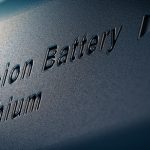Comparing Lead-Acid and Lithium-Ion Batteries for Industrial Use
November 3, 2023 11:33 pm Leave your thoughts
Energy Density:
Energy density refers to the amount of energy a battery can store in a given volume or weight. Lithium-ion batteries typically exhibit much higher energy densities compared to lead-acid batteries. With advancements in technology, lithium-ion batteries offer capacities that are up to three times higher than their lead-acid counterparts. This leads to increased runtime and more efficient use of space in industrial settings.
Lifecycle:
The lifecycle of a battery is a crucial factor in determining its economic viability. Lead-acid batteries generally have a shorter lifespan compared to lithium-ion batteries. On average, a well-maintained lead-acid battery may last around 500 discharge-recharge cycles, while a lithium-ion battery can reach over 2000 cycles. This difference translates into reduced maintenance costs, lower frequency of replacement, and longer service life for lithium-ion batteries.
Weight and Size:
Lead-acid batteries have higher specific gravity and are much heavier compared to lithium-ion batteries. This makes them less suitable for space-constrained industrial environments. Lithium-ion batteries, on the other hand, are significantly lighter and more compact, enabling more flexibility in design and installation. The reduced weight not only simplifies transportation and installation but also contributes to improved overall efficiency.
Charging:
When it comes to charging, lithium-ion batteries take the lead with their superior charging capabilities. They have a higher charge acceptance rate, allowing them to be charged at a faster rate, which proves advantageous in industrial applications. Lead-acid batteries, on the other hand, require longer charge times and have limitations when it comes to accepting high currents. Rapid charging capacity is of utmost importance in industries where downtime needs to be minimized.
Safety Considerations:
While both lead-acid and lithium-ion batteries have their own safety considerations, lithium-ion batteries have faced more scrutiny due to their potential for thermal runaway and fire hazards. However, with advancements in technology and improved safety measures, these risks have been largely mitigated. Nevertheless, it is important to consider safety precautions, training, and guidelines while handling and installing both types of batteries.
Environmental Impact:
In terms of environmental impact, lithium-ion batteries have a clear advantage. Lead-acid batteries pose several environmental concerns due to their use of sulfuric acid and lead, which are hazardous materials and require proper disposal methods. In contrast, lithium-ion batteries are more environmentally friendly, as they do not contain harmful substances such as lead and cadmium. Furthermore, lithium-ion batteries can be recycled, reducing their environmental footprint even further.
Summary:
As the industrial sector continues to evolve, the choice between lead-acid and lithium-ion batteries for energy storage becomes increasingly important. While lead-acid batteries have been the go-to solution for decades, lithium-ion batteries are rapidly gaining popularity due to their superior energy density, longer lifecycle, smaller size, faster charging, and reduced environmental impact. However, it is crucial to carefully assess the specific requirements and constraints of each industrial application before making a decision. Ultimately, the choice between these two battery technologies should be driven by a thorough analysis of the project’s needs, cost-benefit analysis, and long-term objectives.
Need Industrial Battery Supply in Jefferson, WI?
Remis Power Systems Inc has been a family-owned and operated business since 1980. We have become an industry-leading supplier of industrial batteries and chargers. We proudly maintain an impressive inventory of new and certified reconditioned Deka products for all your industrial battery needs. When you do business with, Remis Power Systems, you will find honest and experienced professionals who see things your way! We recognized each one of you had different needs and will work with you to customize our services to your needs. Whether you are in the market for a new or used battery, service program or unplanned service breakdown, we will be there to find the right solution for YOU! Contact us today!
Categorised in: Batteries, Battery Systems, Industrial Batteries
This post was written by admin
